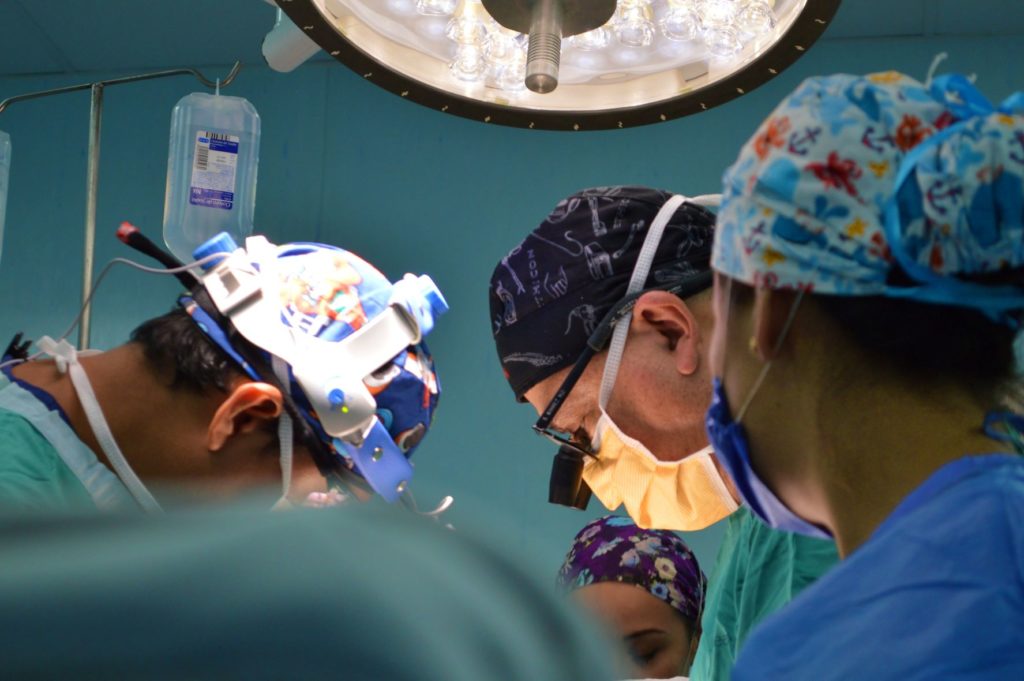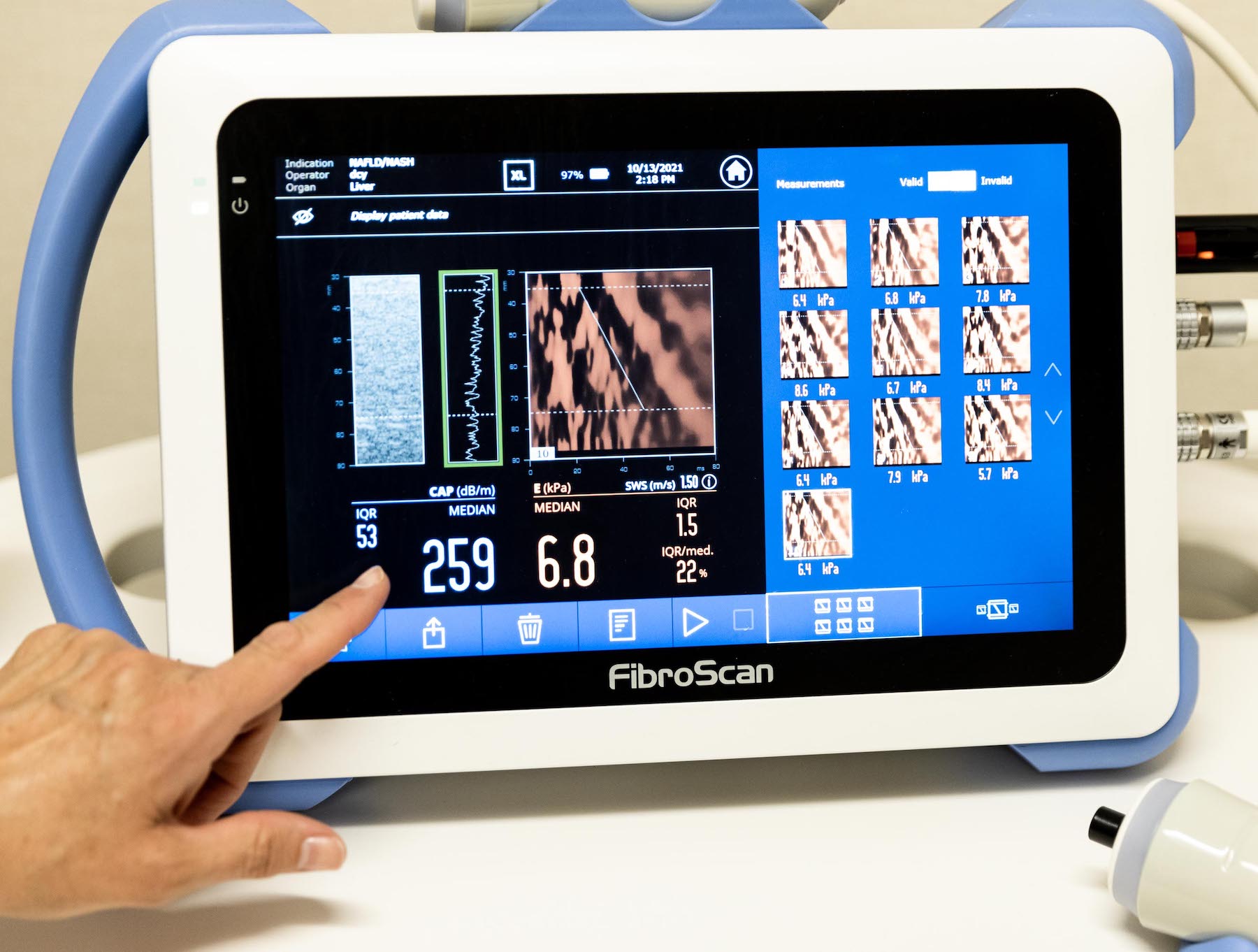What is Cirrhosis?
Cirrhosis is the last stage of fibrosis, or scarring, of the liver. 1 in 4 patients diagnosed with a chronic liver disease will develop cirrhosis. There are 2 types of cirrhosis: compensated and decompensated. Compensated cirrhosis is where the liver is still functioning but has a lot of damage to it as a result of the scarring. Patients with compensated cirrhosis still have the opportunity to reduce this scarring with lifestyle modifications, clinical trial medications, and by avoiding alcohol consumption. Decompensated cirrhosis is when the liver is no longer functioning appropriately, and toxins begin to build up in the body. When toxins begin to build up, the brain, esophagus, and other organs begin to slow down. If this occurs, your doctor will likely refer you to a transplantation specialist for transplant evaluation.
Risk Factors
- Alcohol Use
- Fatty Liver Disease
- Chronic Viral Hepatitis
- Some Medications
- Genetic diseases
- Autoimmune Diseases
Symptoms
- Fatigue
- Nausea
- Edema/swelling
- Weight Loss
- Itchy Skin (pruritus)
- Yellowing of the skin or eyes (Jaundice) – Late Stage
- Abdominal swelling (Ascites) – Late Stage
- Esophageal / Intestinal bleeding (varices) – Late Stage
- Confusion (hepatic encephalopathy) – Late Stage
Cirrhosis Treatments in Kansas City – Focus on the underlying conditions
- Low sodium diet
- Avoid Alcohol
- Medication to reduce fluid (diuretics)
- Banding of bleeding varices
- Liver transplantation

FAQs about Cirrhosis
Frequently Asked Questions
I was just diagnosed with cirrhosis. What is my prognosis?
The more scar tissue you have on your liver, the more difficult it is for your liver to function properly. As cirrhosis is the final stage of liver damage, it can be life-threatening if not addressed. There are five main levels of progression when it comes to fibrosis, or scarring, of the liver:
0. Normal – Little to No Damage Present
1. Mild scarring
2. Moderate scarring
3. Advanced scarring
4. End stage scarring or Cirrhosis
KCRI offers both lifestyle modification advice and clinical trial options for patients with cirrhosis to help manage their symptoms and limit any further damage to their liver.
How can I treat cirrhosis?
If you receive an early diagnosis of cirrhosis, much of the damage to your liver can be limited and often can be reversed entirely. This is the most important course of action for a patient with cirrhosis to help limit the risk of any further scarring or damage. Kansas City Research Institute offers clinical trials as cirrhosis treatments for many patients with this condition.
I don’t drink alcohol. What caused my liver damage?
Alcohol consumption is a common cause of liver damage but is not the only one. Hepatitis B, C, and D are also common causes of cirrhosis, which can be contracted by sharing needles and/or having unprotected sex. Additionally, long-term lifestyle habits such as poor diet or lack of exercise can also cause scar tissue build-up in the liver, leading to NAFLD, NASH, or cirrhosis. Genetics may also play a role in how quickly or slowly patients accumulate fat in their liver; however, there may be other risk factors that are not fully understood. Unfortunately, testing protocols used to assess liver damage do not point to its cause, only its severity.
Don't see the study you're looking for?
Those that Participate:
- See a board-certified physician at no cost
- Have access to possible new treatment options before the general public
- May be compensated for time and travel
We are continually getting new research studies for all types of conditions. Submit your information today to be contacted for upcoming research opportunities.




